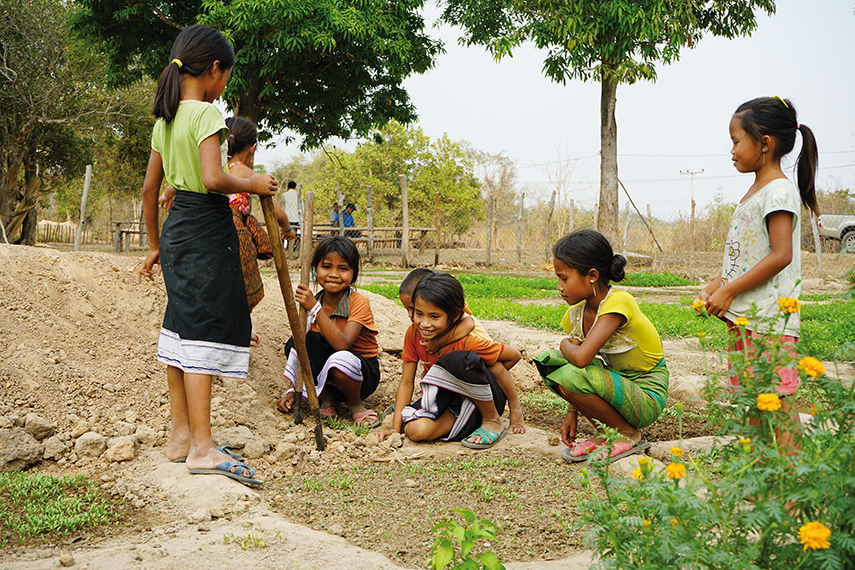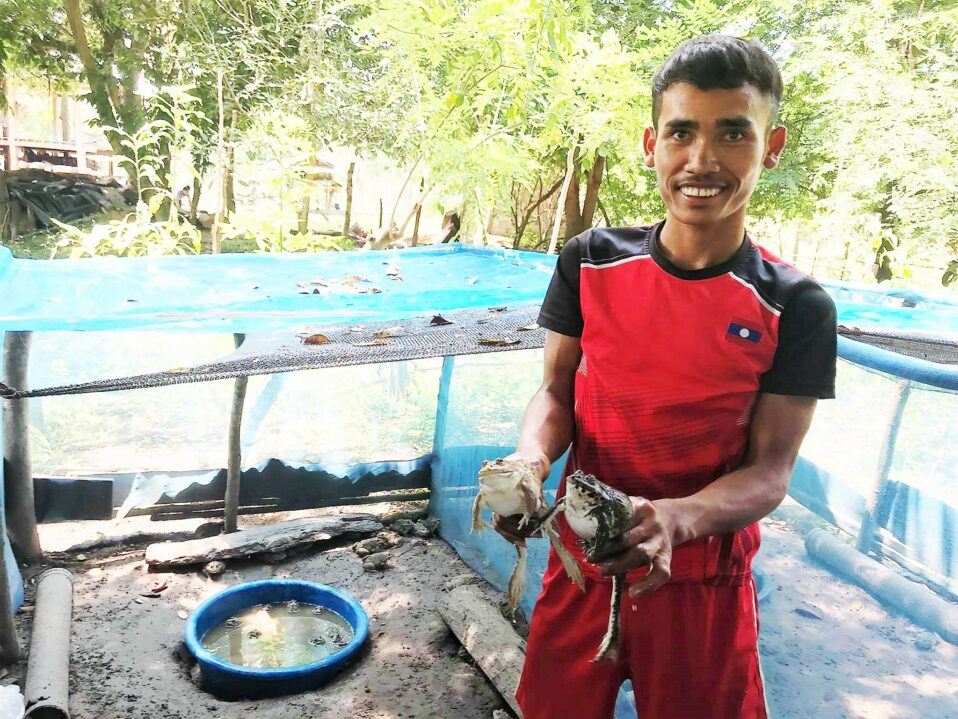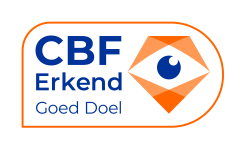Last December the CANTEEN program in Nong district in Laos was finalized with a closing workshop, in which most of the participants of the project attended: MCNV, EU, provincial and local authorities. Unfortunately, due to Covid-19 travel restriction it wasn’t possible a delegation of the AFAS Foundation, Dutch funding partner of the project, nor anyone of MCNV head office, attended the meeting.
Leaping towards improved nutrition – rearing frogs in Lao PDR
Mr. Tambeo, proudly shows off two prize bullfrogs
As the evening draws to a close a loud croaking can be heard throughout Thathe village, in Nong District, Lao PDR. It is the chorus of the East Asian Bullfrog (Hoblobatrachus rugulosus). Although small in size these noisy pond dwellers bring big benefits to poor households in Thathe village, as frog meat is a popular addition to the rural Lao diet whether stewed in a steaming pot or fried as a tasty snack.
The frogs are far easier and cheaper to rear than larger livestock and utilise less water than fisheries, as one small fenced pond of 2m x3m metres can support around 600 frogs. The frogs provide a daily protein constituent in the household diet and also are a valued source of income as they can be sold for 30,000Kip/kg, (around 4-5 frogs per kilo), or exchanged with other families for eggs and vegetables.
Through the EU funded CANTEEN project, MCNV has provided over 45,000 froglets to 75 households through 10 poor villages in Nong District. Household members have been shown how to construct and maintain the ponds and trained in techniques for feeding and caring for the frogs, as well as how to prepare and cook them safely. The addition of aquaculture to farming practices within the villages promotes an agroecology that is nutrition-sensitive and more resilient to the impacts of climate change.

Froglets are initially kept in small ponds once they have grown and are ready for breeding they will be moved to larger ponds.
Mr. Tambeo, is just one of the villagers that has benefited from this simple, but innovative idea. He says that “I was initially skeptical of such a new idea, but the training and support MCNV provided showed me that rearing frogs was a simple and very profitable endeavor. The frogs are easy to breed and raise as I they eat insects and larvae that are easy to obtain, and my children love to eat them! I can also exchange them with neighbours for eggs and vegetables. I can also sell the frogs and the additional income also helps me provide medicine and other essentials for my family and I can buy more froglets to raise and breed. THANK YOU MCNV.”
Although for Mr. Tambeo it was initially a leap of faith to begin rearing frogs with the support of MCNV the project has been a hopping success and MCNV is now looking at extend this idea to other villages school ponds so that children can learn the art of frog raising and enjoy tastier and healthier school meals too.
Dreaming of a life without hunger
The nutritional programs in Phu Yen and Savannakhet in a nutshell
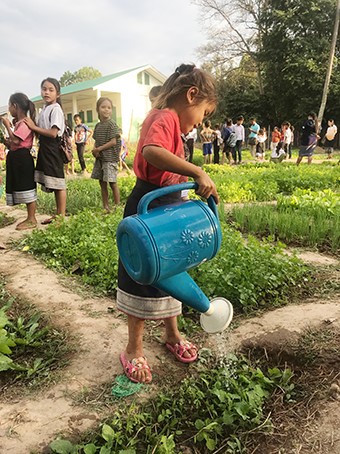
We help villagers grow nutrient-rich crops on a plot of land next to their home. We teach mothers how to prepare the new vegetables. The little ones every day receive a nutritious meal at school or playground and we advise on clean drinking water and hygiene. There is also extra guidance for pregnant women and newborn children. We ask your support to eradicate hunger in these villages for good, our dream! With € 25,000 we can continue this year in both countries with small but structural improvement of the livelihoods of the villagers.
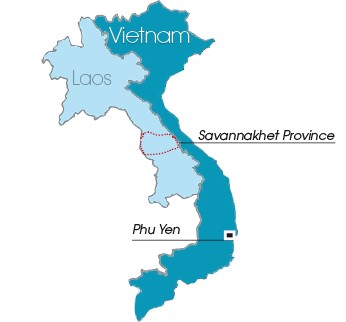
Thank you for your (extra) donation!


